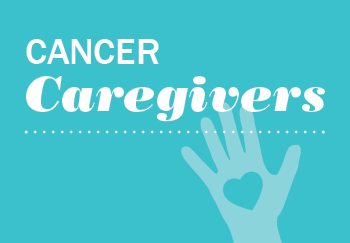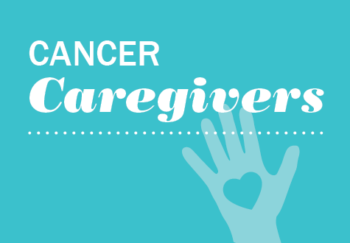
Siblings of cancer patients, no matter the age, are in an emotionally charged situation. They are sometimes called “forgotten mourners” because of their status as being equal to the patient (versus a parent, for example). However, if your sibling has cancer, you will likely feel guilt, fear, worry and everything in between. Because knowledge is power, informing yourself on what to expect as an adult sibling of a cancer patient, learning approaches to help you cope and finding ways to be as supportive as possible are critical first steps.
What You May Feel
When your sibling is diagnosed with cancer, you might find yourself slipping back into your childhood role. Whether you were a protector or perhaps a bit jealous of your sibling in your younger days, the best and worst of your childhood relationship can reemerge as an adult. You may feel guilty for being healthy and living an active life while your sibling is sidelined during treatment, or you may feel anxiety over genetic ties to the specific cancer your sibling has. According to the American Society of Clinical Oncology (ASCO), siblings of cancer patients may also need to work through a changing role within the family or a redefinition of the sibling relationship while treatment continues. Adult siblings are not the only age group working through challenging emotions. Indeed, the ASCO also states children and teenagers experience loss, worry, jealousy and anger. Cancer affects everyone in the family, but the affects vary greatly by age and role.
How You Can Cope
As you support and encourage your brother or sister throughout their treatment, it’s important to take care of yourself. Find friends who you can lean on and talk to, preferably someone that’s not close to (or doesn’t even know) your sibling. This support network will provide a healthy outlet for you to talk about your feelings and worries, and a safe space to work out some negative or confusing emotions you may feel.
Encouraging your sibling is very important during their diagnosis and treatment. Find ways to help out by organizing meal delivery from family friends, being there during chemo sessions and offering to provide online updates on behalf of your sibling. Take on menial tasks, like rescheduling appointments when needed or picking up prescriptions. Not only are these efforts a huge help to your sibling and family, they also give you a purpose, which can help you feel empowered during a situation that’s out of your control.
If you find yourself in a place of fear or worry about any genetic ties to cancer, see your doctor and undergo the recommended screenings and genetic testing. Be honest about how your sibling’s diagnosis impacts you emotionally. Your doctor can connect you with the appropriate mental health provider.
Find Resources for Caregiver Support
Your role as a caregiver and member of the support team for your sibling is a critical one. Getting yourself the help and understanding you need to power through is vital to helping your sibling cope with their illness.
What to Do Next
As you navigate the diagnosis and treatment process with your sibling, consider finding a support group to attend for siblings or family members of cancer patients. You can share stories and resources, encourage one another and enjoy fellowship with people who really understand what you’re going through. Check at the hospital or your religious organization for a local group, or search for online groups. Making a conscious effort to keep yourself emotionally healthy will enable you to be as supportive as possible for your sibling and family.
Consider taking on a special role, like setting up a website for your sibling. By driving the external support from friends that your sibling and your family need during this time, you grow stronger. Become a team and make it clear to your sibling that you’re in it together!
Cancer affects the entire family, not just the patient. You can lead your family’s charge with healthy coping skills. When it comes to dealing with the range of emotions you feel during your sibling’s treatment, do the best you can and be as engaged as possible.


This was so very helpful. My sister has been diagnosed with squamous carcinoma in her pelvic and signals colon. She told me yesterday that she has to have surgery, radiation and chemo. Our friend is going to be her cancer buddy. I’m the youngest by a year and fifteen days. I can only telephone. I feel so helpless and I don’t understand why her and not me. She has children and grandchildren. I have no one. She is so much more fragile than me. She is 70 and I’m 69. If it were me I would let it go but she wants to go through the he’ll.